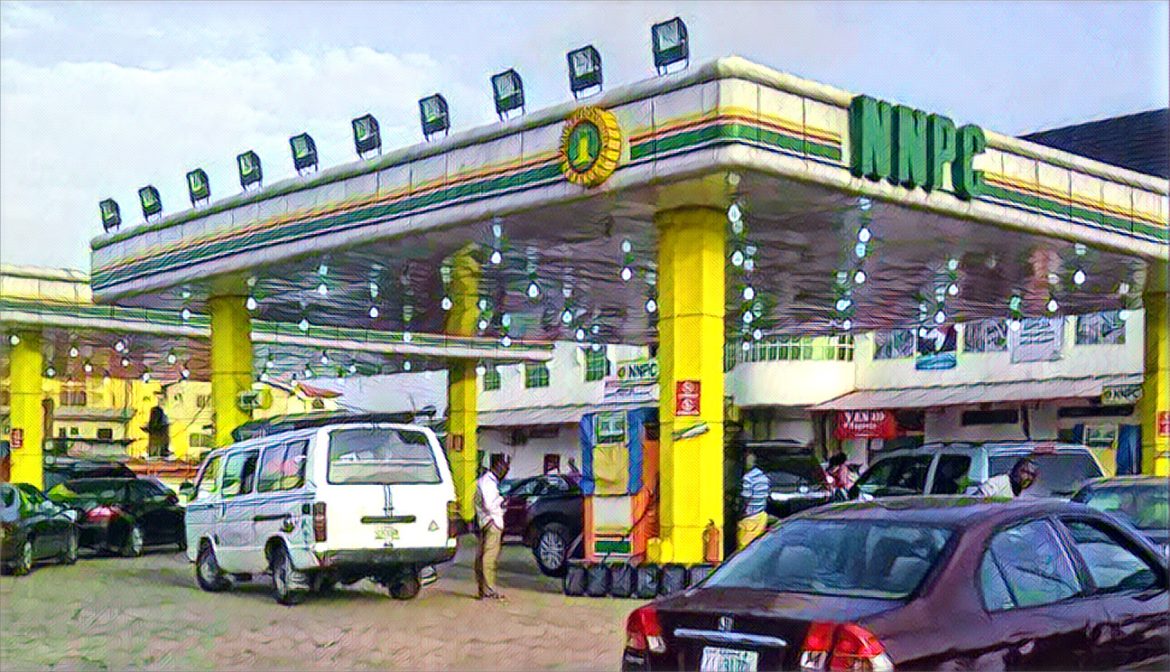Nigeria’s oil marketers have warned that the current price of petrol is unsustainable and have demanded an increase to N1,200/liter, amid a worsening fuel subsidy crisis.
The Independent Petroleum Marketers Association of Nigeria (IPMAN), which represents over 80% of the country’s fuel retailers, said the government was subsidizing petrol by more than 50%, as the cost of importing the product had skyrocketed due to the depreciation of the naira and the rising global crude oil prices.
According to IPMAN, the landing cost of petrol is now over N300/liter, while the pump price is fixed at N617/litre to N660/litre, depending on the location. This means the government is paying over N250/liter as subsidy to keep the price affordable for consumers.
However, the Nigerian National Petroleum Company Limited (NNPCL), the sole importer of petrol, has denied paying any subsidy, insisting that it recovers its full costs from its imported products.
The NNPCL’s Chief Corporate Communications Officer, Olufemi Soneye, said the government had stopped subsidizing fuel since May 2023, when President Bola Tinubu announced the removal of subsidy and the deregulation of the downstream sector.
He said the NNPCL was not responsible for the depreciation of the naira, which had fallen to over N1,000 per dollar in the parallel market, and over N998 per dollar in the official market.
He also stated that the NNPCL was not in control of the global crude oil prices, which had risen to over $100 per barrel, due to the high demand from recovering economies and the supply constraints from the OPEC+ alliance.
Based on a report by Punch, Soneye urged the oil marketers to be patriotic and cooperate with the government to ensure the stability of the fuel supply and distribution in the country.
The Impact of The Fuel Subsidy Crisis
The fuel subsidy crisis has serious implications for Nigeria’s economy, which is heavily dependent on oil revenues and imports.
According to the World Bank, fuel subsidies are a major drain on the country’s public finances, as they consume about 3% of the GDP and crowd out spending on health, education and infrastructure.
The bank also said fuel subsidies are regressive and benefit the rich more than the poor, as the former consume more fuel than the latter. They advised the government to phase out fuel subsidies and replace them with targeted social protection programmes that would cushion the impact of higher fuel prices on the vulnerable segments of the population.
The fuel subsidy crisis also poses a threat to the country’s macroeconomic stability, as it puts pressure on the foreign exchange reserves and the exchange rate.
According to the Central Bank of Nigeria, the country’s external reserves have declined by over $10 billion since January 2023, due to the high demand for dollars to import fuel and other essential goods.
The bank said the depreciation of the naira had fueled inflation, which had risen to over 20% in November 2023, eroding the purchasing power of consumers and businesses.
The bank also urged the government to implement structural reforms that would diversify the economy, boost productivity, enhance competitiveness and attract foreign investment.
The Way Forward for Nigeria’s Fuel Sector
The fuel subsidy crisis has exposed the need for Nigeria to reform its fuel sector and address the challenges of refining, distribution and pricing.
According to experts, Nigeria needs to revive its domestic refining capacity, which has been operating at less than 10% of its installed capacity of 445,000 barrels per day.
The experts said the country should leverage the opportunities offered by the Petroleum Industry Act, which was signed into law by President Tinubu in August 2023, to attract private investment and partnerships into the refining sector.
Also, the country should improve its fuel distribution network, by expanding the pipeline infrastructure, upgrading the depots and terminals, and ensuring the safety and security of the facilities.
The experts expressed optimism that Nigeria could overcome the fuel subsidy crisis and achieve a sustainable and efficient fuel sector that would support the country’s economic growth and development.


